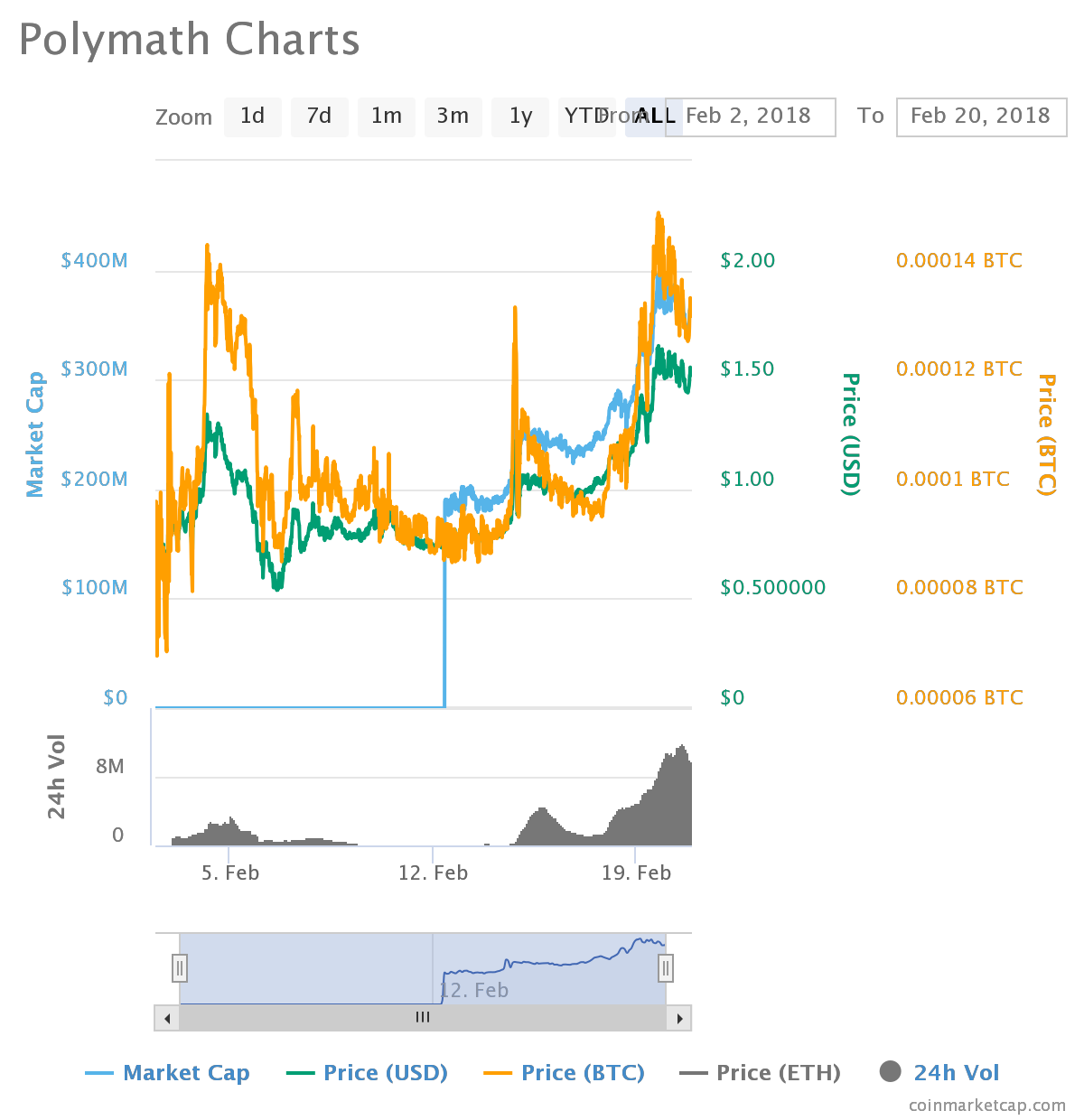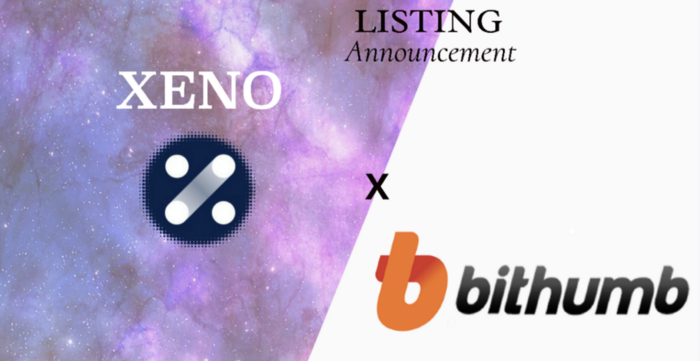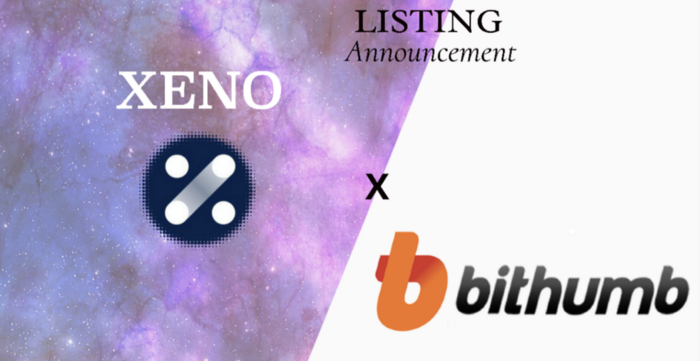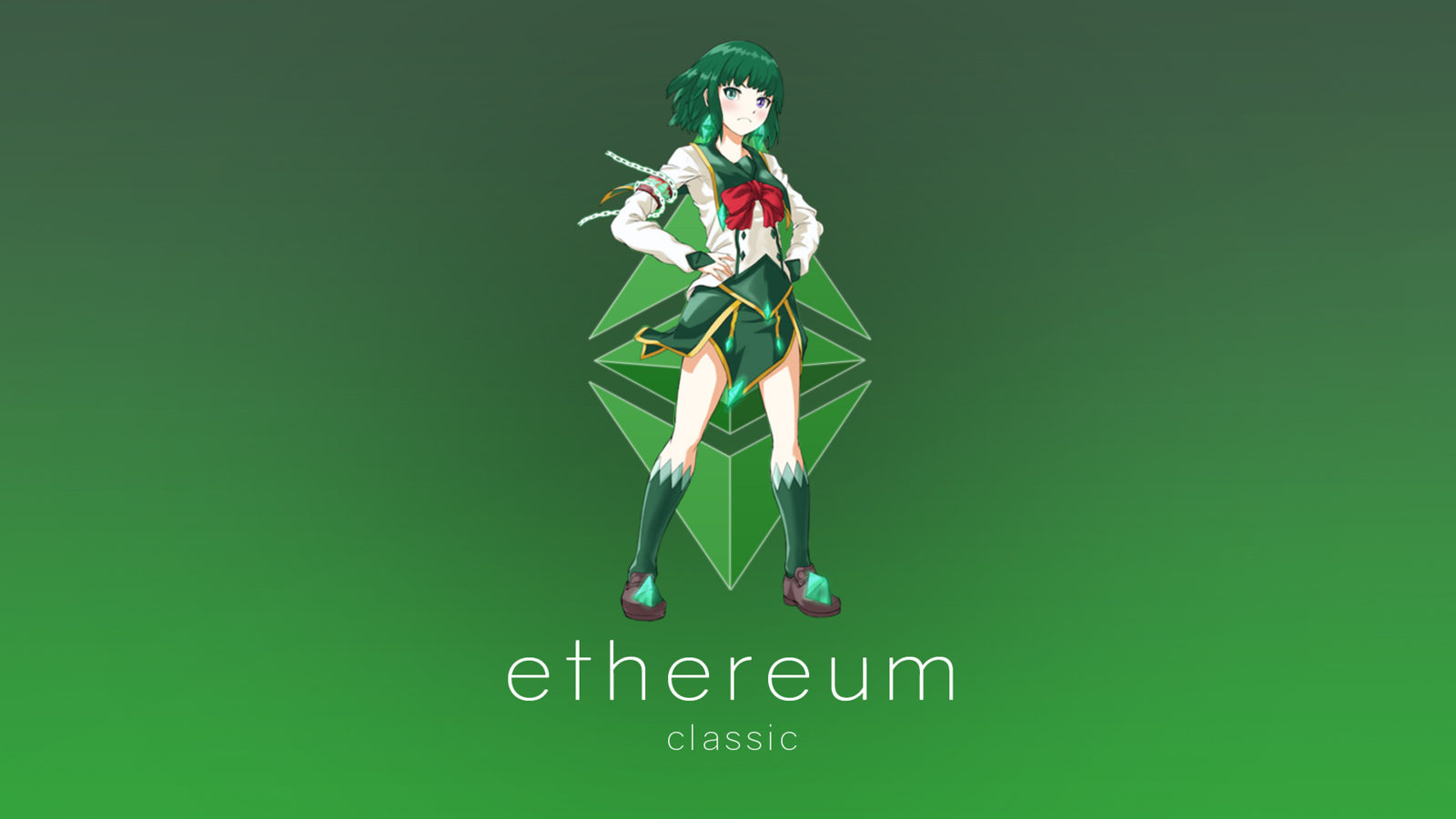Blogs
Cryptocurrency Security Trading Roars to Life with Polymath (POLY)

The recent explosion in initial coin offerings has shown a fairly specific trend. Most of the new coins are considered ‘application’ tokens, or currencies designed for use within an application created by the issuer. Given the genesis of blockchain technology, there’s nothing surprising about this. The first adopters of cryptocurrency were technologically minded and focused on what the new system could do. As blockchain development gained momentum and value, the financial world started to take notice. High on their list of potential uses was the creation of ‘security’ tokens. This would bring the world of company shares to the blockchain, and provide all the advantages of a decentralized, distributed ledger.
Polymath’s software development has focused on bringing this capacity directly to issuers. Their Polymath platform will allow individuals and companies to easily create a security token to serve as a digital share of their enterprise. The ST20 standard for new tokens is designed to be quick, easy and above all else, verifiable. In order to create the decentralized securities exchange that they envision, Polymath must ensure that they apply the same regulations that govern traditional securities.
The Difference Between ‘Application’ and ‘Security’ Tokens
Most savvy crypto-investors are already well aware of the difference between a coin and a token. Beyond that, there is also the difference between an ‘application’ token and a ‘security’ token. The vast majority currently available on the market are application tokens. The Ethereum ERC20 standard is still the code base of choice for these tokens, which are created to serve a purpose within the software ecosystem of the issuer. Polymath’s POLY token is, itself, an ERC20 token that uses smart contracts to help verify identity and as a common currency within the system for security exchanging.
In contrast, a security token does not serve any function on its own. Rather, it is a form of ‘digital share’, representing ownership of a portion of the issuer’s company. This can include many of the features of traditional stocks, including dividends and voting rights. The ST20 Polymath platform standard allows the creation of security tokens for internal use. The issuing entity can then sell their currency to build initial capital. Those security tokens can then be traded on the Polymath platform, using POLY as a common value currency.
“Know Your Customer” Identity Verification
One of the most critical components of the Polymath system is the strict adherence to regulations. Polymath intends to verify the identification of all users, as well as their required certifications. They will do this using the native smart contract capacity of the POLY token. This will help ensure that anyone purchasing securities on their exchange is legally able to do so. This is known as a KYC or Know Your Customer requirement, and is expected of traditional brokerages. Polymath believes that these types of regulations will eventually be enforced on the cryptocurrency market.
It also adds an additional level of revenue generation within the platform. KYC providers will serve an important purpose, running the necessary checks to ensure valid identities. Users will be able to choose from all the KYC providers on the network so that they can choose the best option for them – including price and accreditation in their country of residence. The same is true of issuers, who will use a legal delegation pool to find someone to manage their smart contract requirements. These delegates can enforce certain restrictions on the issuance of tokens – including time-locked freezes and coin burns.
Polymath as a New Type of Securities Exchange
Traditional security offerings are often expensive and time-consuming, requiring multiple layers of middlemen and legal teams. It can take years to fully realize an initial public offering. There are also multiple levels of investor, requiring different levels of accreditation to invest. This has partially been responsible for the prevention of United States citizens from participating in many ICOs. Polymath intends to create a platform where this can be done more easily, and much more quickly.
All of the same rules and regulations would be in place, particularly in regards to identity. The KYC and Legal delegate system would remove much of this burden. The ST20 token is also designed from the ground up to be simple to implement. Once the new security token is available on the Polymath platform, it can easily be traded on the secondary securities market by anyone holding POLY tokens.
Polymath’s Potential
Since POLY’s release less than a month ago, the cryptocurrency has already more than doubled in value. Their extremely low market cap of only $364 million leaves them tremendous space for growth from their current per coin price of $1.5. As they begin implementing their securities exchange platform and bringing new security tokens on board, their price should adjust accordingly. The project is ambitious, but the technology is available – it is just a matter of implementing it.
We will be updating our subscribers as soon as we know more. For the latest updates on POLY, sign up below!
Disclaimer: This article should not be taken as, and is not intended to provide, investment advice. Global Coin Report and/or its affiliates, employees, writers, and subcontractors are cryptocurrency investors and from time to time may or may not have holdings in some of the coins or tokens they cover. Please conduct your own thorough research before investing in any cryptocurrency.
Image courtesy of coinmarketcap.com
Altcoins
XNO Token of Xeno NFT Hub listed on Bithumb Korea Exchange


Hong Kong, Hong Kong, 25th January, 2021, // ChainWire //
Xeno Holdings Limited (xno.live ), a blockchain solutions company based in Hong Kong, has announced the listing of its ecosystem utility token XNO on the ‘Bithumb Korea’ cryptocurrency exchange on January 21st 2021.
Xeno NFT Hub (market.xno.live ), developed by Xeno Holdings, enables easy minting of digital items into NFTs while also providing a marketplace where anyone can securely trade NFTs.
The Xeno NFT Hub project team includes former members of the technology project Yosemite X based in San Francisco and professionals such as Gabby Dizon who is a games industry expert and NFT space influencer based in Southeast Asia.
NFT(Non-Fungible Token) technology has recently gained huge focus in the blockchain arena and beyond, making waves in the online gaming sector, the art world, and the digital copyrights industry in recent years. The strongest feature of NFTs is that “NFTs are unique digital assets that cannot be replaced or forged”. Unlike fungible tokens such as Bitcoin or Ether, NFTs are not interchangeable for other tokens of the same type but instead each NFT has a unique value and specific information that cannot be replaced. This fact makes NFTs the perfect solution to record and prove ownership of digital and real-world items like works of art, game items, limited-edition collectibles, and more. One of the ways to have a successful…
Altcoins
Should Crypto Projects Devote Resources to Community Growth and Marketing?

2020 has been an incredible year for crypto as investors have generated windfall profits and crypto projects have seen their businesses gain the spotlight they’ve been looking for. While Bitcoin has received most of the attention after major institutional investors announced they were accumulating the increasingly scarce asset, many altcoins have also seen their fair share of glory. When looking at all the big winners of the past year, the first project that probably comes to mind is Chainlink, having appreciated by more than 550% YTD and now valued at over $4.5 billion. But, the actual biggest winner of the year is HEX with a YTD return of over 5,000%.
I mention both of the above projects as they have each taken slightly different paths to achieve greatness. Chainlink has devoted resources toward building a fundamentally sound business with many strategic partnerships while HEX has spent vast sums of money on marketing and promotion. Both approaches are valid, but one thing is certain, it is absolutely imperative for crypto projects to let the crypto community know what makes them special. Of course, one of the reasons that makes crypto so valuable is the powerful blockchain technology that most projects are utilizing.
Cryptocurrency vs. Blockchain Technology
It’s important to make a distinction between blockchain technology and cryptocurrency. Although they are often used interchangeably, they are different. Blockchain technology and crypto were both created after the 2008 financial crisis, but cryptocurrency…
Altcoins
XENO starts VIP NFT trading service and collaborates with contemporary artist Hiro Yamagata


Hong Kong, Hong Kong, 24th December, 2020, // ChainWire //
The XENO NFT Hub (https://xno.live) will provide a crypto-powered digital items and collectables trading platform allowing users to create, buy, and sell NFTs. Additionally it will support auction based listings, governance and voting mechanisms, trade history tracking, user rating and other advanced features.
As a first step towards its fully comprehensive service, XENO NFT Hub launched a recent VIP service to select users and early adopters in December 2020 with plans for a full Public Beta to open in June 2021.
“NFTs are extremely flexible in their usage, from digital event tickets to artwork, and while NFTs have a very wide spectrum of uses and categories XENO will initially focus its partnership efforts and its own item curation on three primary areas: gaming, sports & entertainment, and collectibles.”, said XENO NFT Hub president Anthony Di Franco.
He also added “This does not mean we will prohibit other types of NFTs from our ecosystem However, it simply means that XENO’s efforts as a company will be targeted into these verticals initially as a cohesive business approach.”
Development and Procurement Lead, Gabby Dizon explained, “Despite our initial focus, we found ourselves with a unique opportunity to host some of the works of Mr. Hiro Yamagata. We are collaborating with Japanese artist Hiro Yamagata to enshrine some of his artwork into NFTs.”
Mr. Yamagata has…
-

 Blogs6 years ago
Blogs6 years agoBitcoin Cash (BCH) and Ripple (XRP) Headed to Expansion with Revolut
-

 Blogs6 years ago
Blogs6 years agoAnother Bank Joins Ripple! The first ever bank in Oman to be a part of RippleNet
-

 Blogs6 years ago
Blogs6 years agoStandard Chartered Plans on Extending the Use of Ripple (XRP) Network
-

 Blogs6 years ago
Blogs6 years agoElectroneum (ETN) New Mining App Set For Mass Adoption
-

 Don't Miss6 years ago
Don't Miss6 years agoRipple’s five new partnerships are mouthwatering
-

 Blogs6 years ago
Blogs6 years agoEthereum Classic (ETC) Is Aiming To Align With Ethereum (ETH)
-

 Blogs6 years ago
Blogs6 years agoCryptocurrency is paving new avenues for content creators to explore
-

 Blogs6 years ago
Blogs6 years agoLitecoin (LTC) Becomes Compatible with Blocknet while Getting Listed on Gemini Exchange








